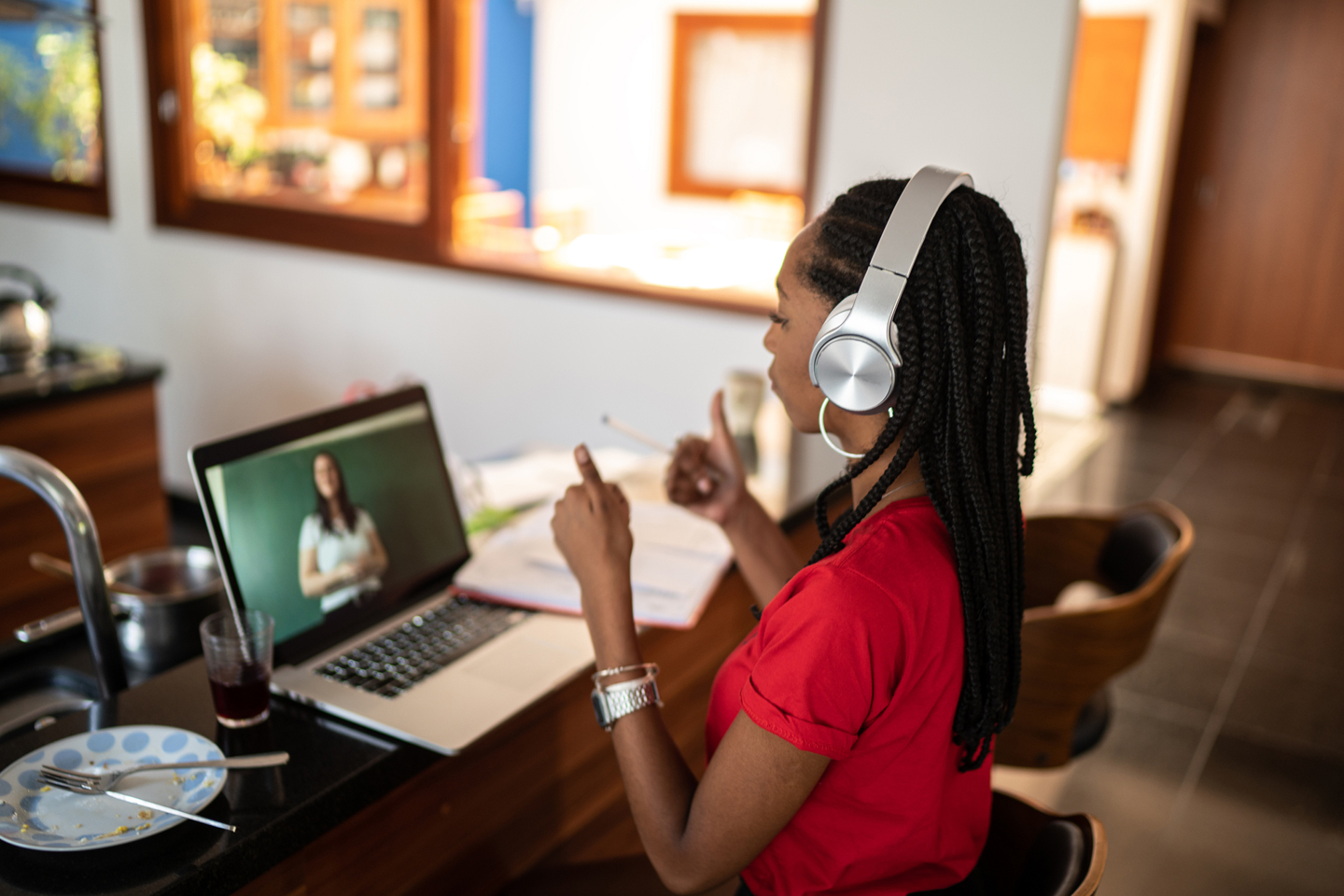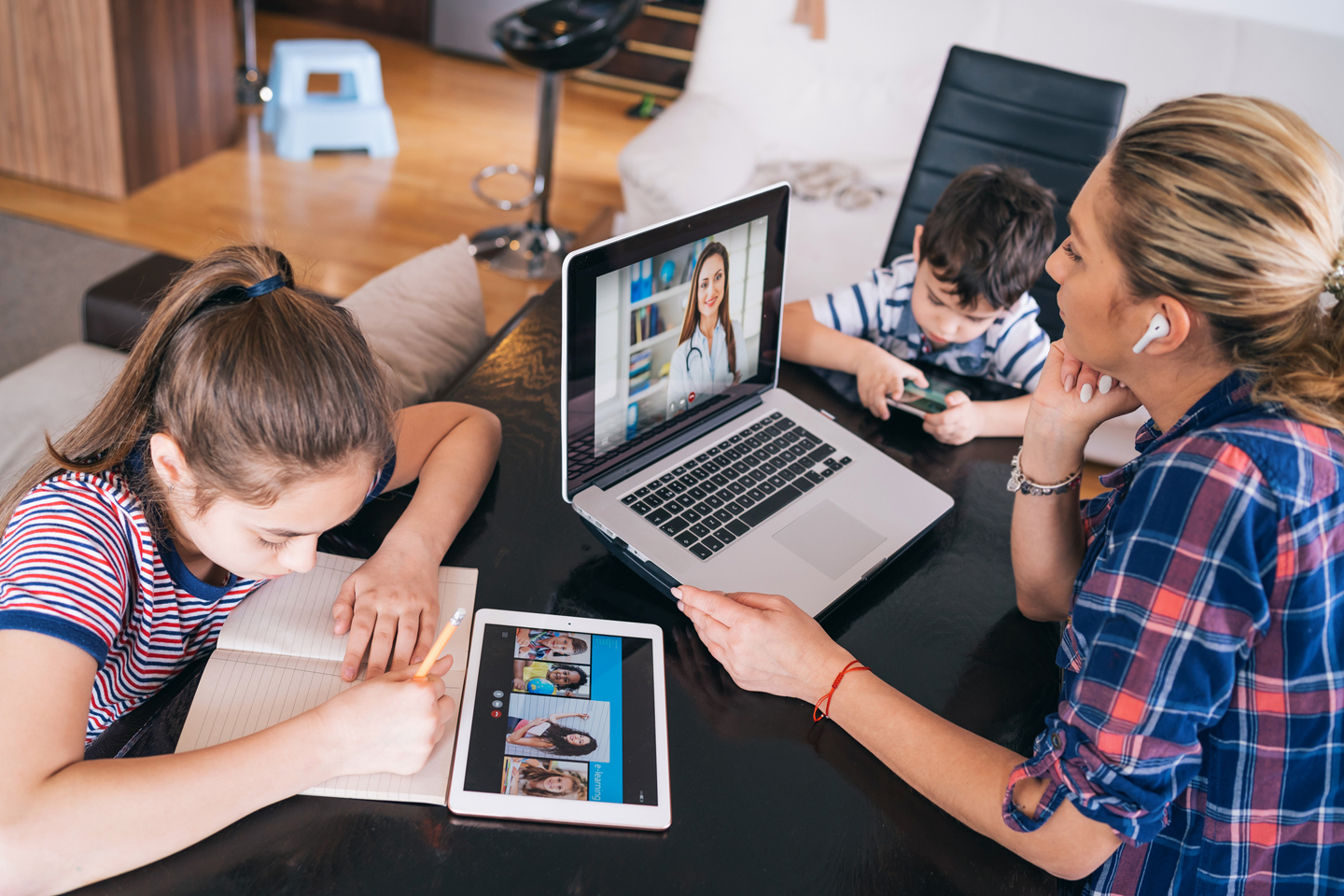At YRDSB, we are committed to maintaining inclusion, engagement and healthy relationships in all learning environments. Please find some considerations below for supporting your child(ren) with virtual learning.
Establish and Maintain Routines
Help your child(ren) set regular hours for their schoolwork using a calendar or checklist of required tasks per day. Expectations for daily tasks are important but do not have to be rigid and need to work for your family context. Customize your child(ren)’s schedule to fit their needs, as well as those of your family. Routines such as bedtime, nutrition, hygiene and physical activity are important. Establish these parameters from the beginning to build habits of success. At the end of the week, review which routines worked well and which may need to be adjusted moving forward.

Start/End Each Day With a Learning Check-In
Regular check-ins with your child will help them to process instructions, organize their work and proceed with the learning for the day. Engaging with your child’s learning can help support learning skills and work habits needed for success.
Communicate with your Child’s Teacher(s)
Consider logging into online classrooms regularly to see announcements and lessons/activities posted by your child’s teacher and continue to communicate with the teacher as needed. Students are to do their best to complete work on time and meet deadlines and can connect with their teacher when they need support. Reach out or have your child speak with their teacher on an ongoing basis to support the best possible learning experience. If you have questions or concerns, please connect with the teacher outside of the instructional time(s). Do not interrupt a teacher’s lesson to provide feedback on their performance or teaching style.

Find a Physical Space for Learning
When working online, children need structure so they can stay on track to achieve their learning goals (e.g. Turn off other media/devices during instructional time, have a clear space for the work environment). We encourage families to help their child(ren) find a space(s) to work that supports sustained concentration, reading/listening/viewing and where they can check-in with them (consider using headphones where possible/appropriate).
It is also important to remember that many children benefit from a flexible learning space, meaning one where they can rearrange things or move to a different space depending on the type of work they are doing (e.g., move to a couch or beanbag chair for reading).
Microphones and Cameras
Students learning virtually in EVS are expected to be fully engaged during instructional time. This means that cameras will be on during class time. In addition, students will participate in class chats, pose and respond to questions orally and will complete homework and assignments.
To maintain privacy while having cameras on, students are encouraged to use background filters. In cases where some devices (such as Chromebooks) do not allow for this functionality, however, teachers are able to use tools (such as “Immersive View” on Zoom) to disguise student backgrounds for the whole class.
By having cameras on, we will build connections with one another that support learning and build a strong sense of community. Students or families should speak with their classroom teacher if there are concerns. If a student does not have a device with a camera and microphone, they can speak with their teacher to request one.
Encourage Physical Activity and/or Exercise
Research shows that increased physical activity has a positive effect on cognitive functioning, health, well-being and learning. Remind your child(ren) to move and exercise. Take breaks from the learning when needed and get outside if possible. Consider an online physical challenge and/or exercise class.
Remain Mindful of How your Child is Feeling
It’s important to monitor and support your child’s well-being in this context. Children may need help managing the worry, anxiety and range of emotions they may experience. Access mental health and community support resources as needed.

Support Digital Citizenship
Support your child(ren) in connecting online socially, but be aware of their online interactions and the total amount of time they spend online. Monitor and set parameters for your child(ren)’s use of social media and the platforms they use. Remind your child(ren) that the rules of the classroom apply online too. They must be respectful and appropriate in their online communications. Online interactions should continue to align with the board's Digital Citizenship policy. Follow the YRDSB Guidelines for Acceptable Use of Technology (PDF).